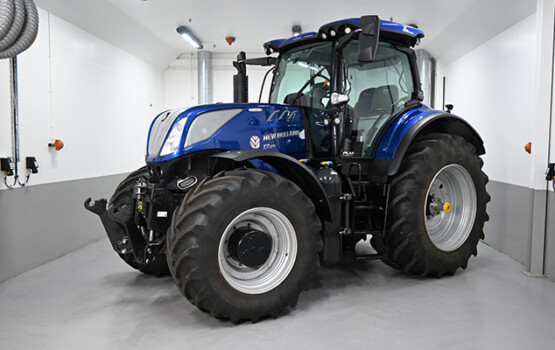Portal for more climate-friendly mobility
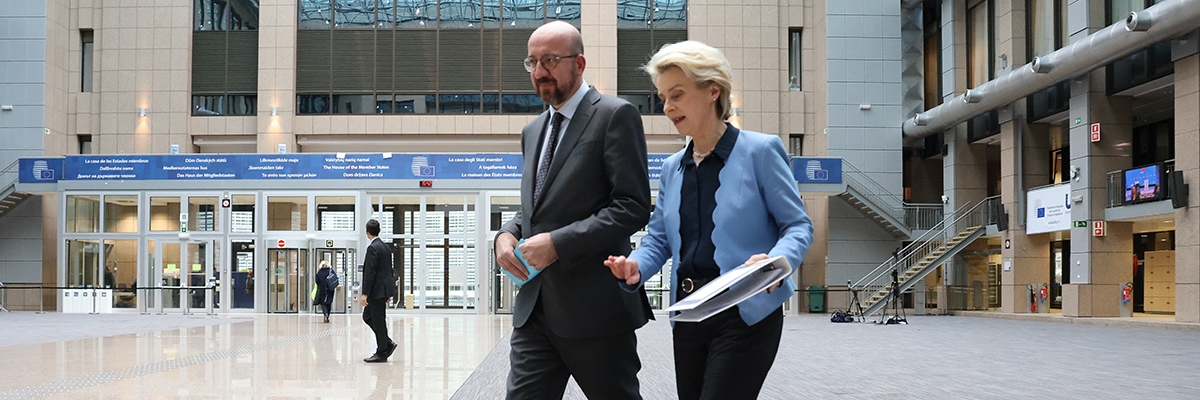
Setback for the well-to-wheel approach
The tightening of CO2 emission standards for new cars is being debated in Brussels – with disputed changes and, unfortunately, a setback for biogas and e-fuels.
 Source: EU
Source: EU
The proposal for a regulation of the European Parliament and of the Council amending (EU) Regulation 2019/631 is currently being examined and adjusted in Brussels. One of many, but one with major implications, as this involves stricter CO2 emission standards for new cars and new light commercial vehicles. This is to be brought into line with the European Union’s increased climate targets.
TRAN, the Commission on Transport and Tourism, has adopted a compromise amendment in which the EU must ensure that all solutions, including renewable fuels, will contribute to decarbonising the transport sector – both now and after 2035. Pascal Arimont, Member of the European Parliament, said: “We can’t put all our eggs in one basket too soon. After all, the European Commission wants only new vehicles with electric motors to be registered from 2035 onwards. The committee agreed with my argument that we should rather provide for technology-neutral and more flexible solutions for European motorists.”
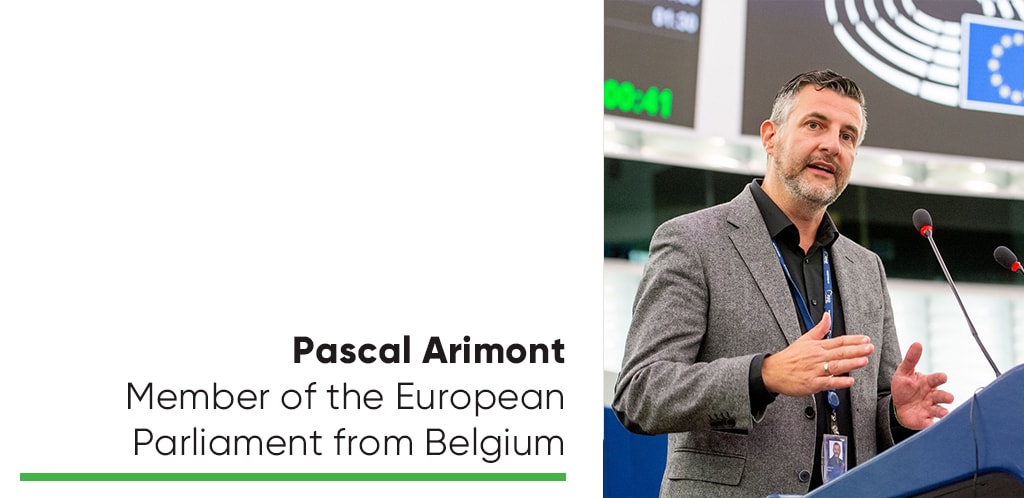
According to TRAN, it is necessary to go beyond the pure tank-to-wheel approach when measuring emissions – as is currently the case, giving electric cars an advantage over vehicles powered by biogas or other sustainable fuels, for example. In the future, emissions should be considered on the basis of a well-to-wheel calculation and thus a more holistic life cycle assessment. “A strict ban on the internal combustion engine in 2035 could lead to serious problems for the automotive industry – manufacturers, suppliers, car repair shops – and the approximately 3.5 million people employed in the sector,” adds the 47-year-old Belgian EU politician.
The arguments in favour of biogas and e-fuels and thus a technology-neutral approach on the road to decarbonisation were also well received by the EU Environment Committee. Nevertheless, those in favour of technology neutrality have had to bow to the will of a very narrow majority who want to continue the policy of favouring electric vehicles. “This is a bitter setback for consumers and climate protection! Without considering renewable fuels and a ban on the combustion engine, we are rejecting a flexible technology mix in road transport that includes all climate-friendly options for accelerating the phasing-out of fossil fuels,” said Ralf Diemer, Managing Director of the eFuel Alliance.
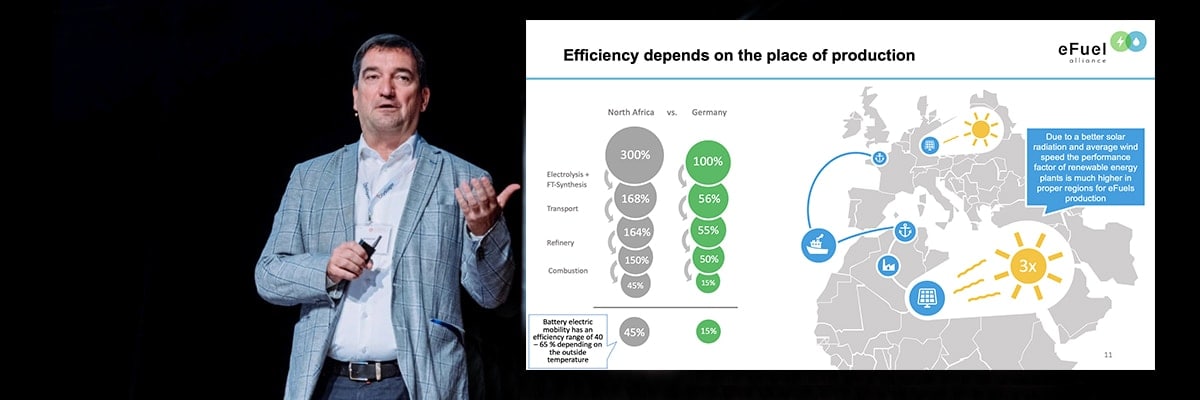 Ralf Diemer, managing director of the eFuel Alliance. Source: eFuel Alliance
Ralf Diemer, managing director of the eFuel Alliance. Source: eFuel Alliance
It is therefore to be hoped that, in their vote on the new CO2 regulations on 7 June, MEPs will not simply ignore the huge potential of e-fuels and biogas to minimise CO2 emissions, but will in the end opt for a technology-neutral approach. “On the one hand, not all people in the EU will be able to afford an electric car in the future. On the other hand, the Ukraine war and the resulting energy crisis show us that the fixation on a single option can lead to dangerous dependencies if the global economic system is shaken,” warns Diemer .
In order to ensure that emissions are reduced as effectively as possible, TRAN considered it necessary to establish a harmonised methodology for measuring the carbon footprint of vehicles throughout their life cycle by the end of 2023 at the latest. This is the only way to obtain an overview of the overall environmental impact of passenger cars and light commercial vehicles and thus to initiate appropriate and targeted measures and tougher CO2 emission standards. By analysing the life cycle of emissions from vehicles, fuels and energy, greenhouse gas intensity is also taken into account in the extraction of minerals, production and recycling – this creates comparability and paves the way for a technology-neutral approach which benefits all sustainable engine options.
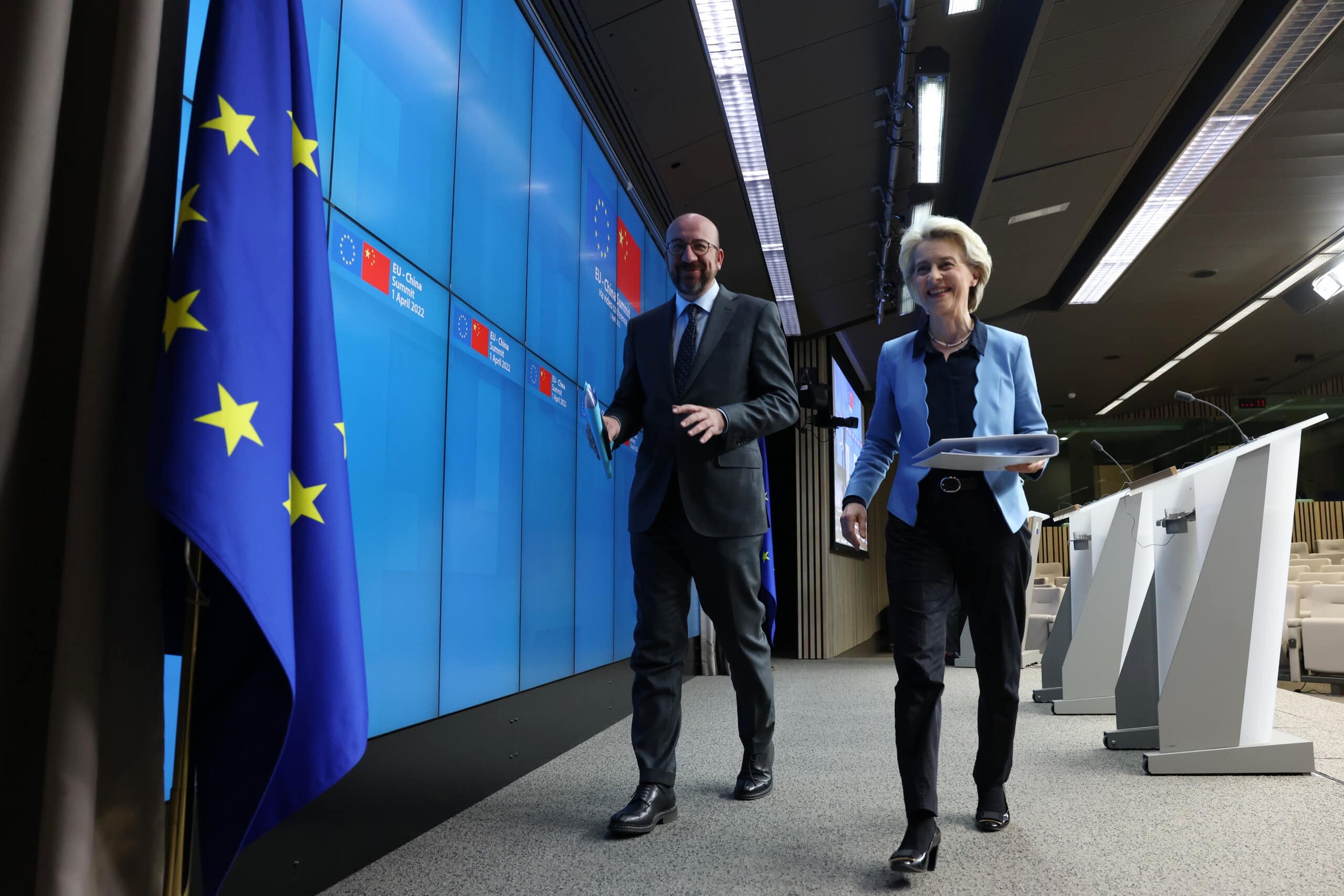 Will the EU Parliament create technology openness in early June, or will Charles Michel (EU Council President) and Ursula von der Leyen’s (EU Commission President) colleagues continue to embrace the tail-pipe approach, paving the way for electromobility? Source: EU
Will the EU Parliament create technology openness in early June, or will Charles Michel (EU Council President) and Ursula von der Leyen’s (EU Commission President) colleagues continue to embrace the tail-pipe approach, paving the way for electromobility? Source: EU
It remains to be seen whether, instead of playing off climate protection technologies against each other in the vote on 7 June, MEPs will focus on phasing out fossil energy and fuels. By adopting a “yes” approach to technology neutrality, a level playing field could finally be created for all sustainable energy sources, and biogas and e-fuels could thus also make an important contribution to climate protection and the decarbonisation of mobility. (jas, 17 May 2022)
You might also be interested in
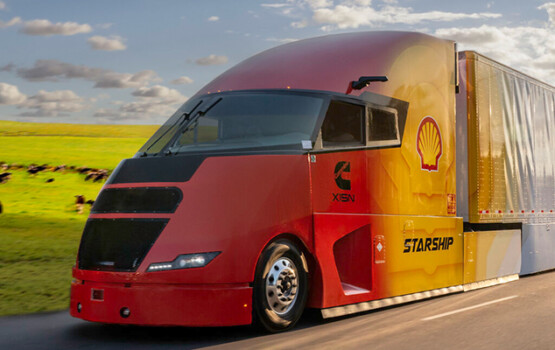
Shell Starship on record hunt
